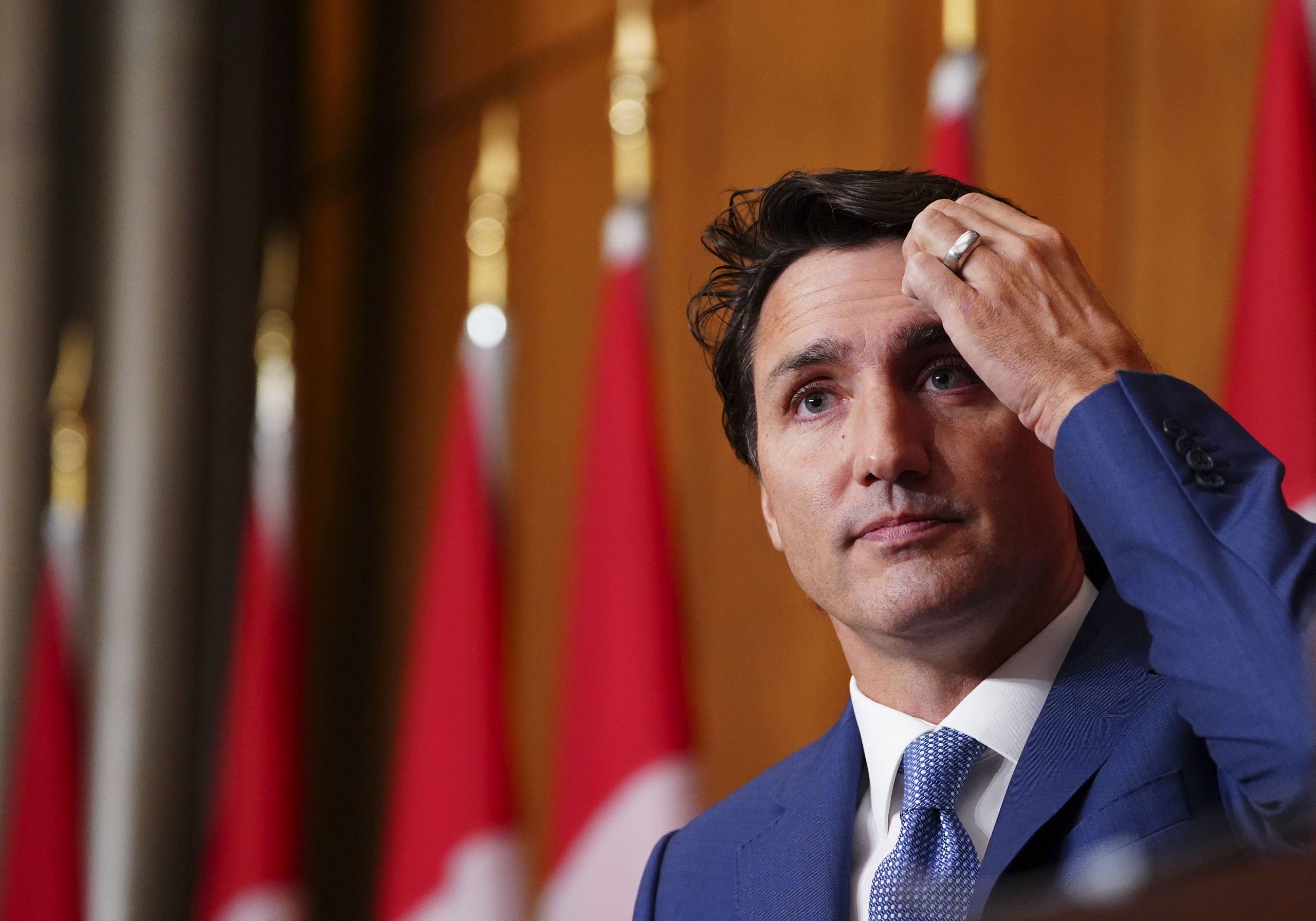The federal government will appeal a decision by the Queen’s Council Court in New Brunswick, which held the vice-governor’s monolingualism unconstitutional.
But at the same time, the federal government ensures that the Queen’s next representative in New Brunswick will be bilingual.
Dominique LeBlanc, Member of Parliament for Beauséjour, says the government accepts part of the Queen’s Bench court’s decision.
“We accept the important principle that the Deputy Governor of NB must be bilingual and we are committed that Ms. Murphy’s successor be a bilingual person.”
The Minister says that in accordance with the legal opinion of the Department of Justice, it is nevertheless necessary to appeal the case to obtain a decision from the Court of Appeal on the constitutional principles contained in the decision of the Chief Justice of the Queen’s Punch Court. Note: Tracy K Dewer.
the decision
Judge Dewer found the appointment unconstitutional.
His verdict was delivered on April 14. The federal government had one month to decide what to do next.
The suit was filed by the Société de l’Acadie du N.-B. , which was not available to respond to this news Friday evening.
In her decision, the judge decided that a person holding a position in the NB “must be bilingual and able to perform all the duties required for his role in the French language.”
It also concluded that bypassing Brenda Murphy’s nomination would do great harm because it would undermine the laws and executive orders she has enacted since her nomination in 2019.
One reason for appeal relies on parts of the Canadian Charter of Rights, Freedoms, and Obligations that it imposes on Canadian institutions.
Although the charter imposes a bilingual obligation on institutions rather than on individuals, Justice Dewer held the role to be specific.
“The charter does not require that all government officials, ministers, judges or chief ministers at the provincial and federal level be bilingual. However, these persons can all be replaced by someone else to carry out their functions, unlike the Deputy Governor,” one could read in his decision.
usurped the role of the executive
The federal government’s appeal notice, a copy of which was obtained by Acadé Nouvel, calls into question this aspect of the Chief Justice’s conclusion.
“While the institution of the Deputy Governor of the NB is covered by the respective language provisions as a component of the Legislature and Government of New Brunswick, this does not mean that the latter requires that the office holder be bilingual.”
In the notice, the Canadian Attorney General’s office also claims that Judge Dewer erred in reviewing the duties of the Deputy Governor to determine that they required mastery of the two official languages, and thus the judge “usurped the role of the executive.”
Also according to the opinion, the presence of bilingual staff is sufficient for the Deputy Governor to perform her duties.
“Linguistic rights must certainly be interpreted in a broad and liberal way… (…) Yet we cannot dispense with interpreting the text of the rulings which they create and making them say what they do not say.”
The Governor-General appoints deputy governors on the advice of Prime Minister Justin Trudeau.
According to the Ottawa grounds of appeal, this power of appointment is at the full discretion of the Queen’s representative, without any bilingual requirement.
Moreover, the Ministry of Justice considers that the opinion of the Prime Minister is not subject to oversight by the courts because it is a political decision.
Firm commitment according to the Minister
The government’s obligation to appoint a bilingual representative of the Queen is not a legal obligation, and in principle another federal government can appoint a bilingual person again.
But the idea of enshrining this obligation in law is also constitutionally problematic, for some of the same reasons that prompted the appeal, according to Dominique LeBlanc.
“The idea of legislating is also, for us, a complex constitutional problem.”
According to the minister, one of these reasons is based on the principle that one section of the charter may not be used to change another section of the constitution.
“We want to hear the Court of Appeals about how the Constitution is interpreted, because for the federal government, this is much more complex than the question of the Deputy Governor’s language abilities.”
However, the Constitution gives the Prime Minister the discretion to appoint the Governor General and Deputy Governors.
“The Constitution gives this discretion to the Prime Minister, and does not limit that discretion, in New Brunswick, for example, to appointing bilingual persons only. If we were to change the Constitution, our position is that it needs a constitutional amendment.”
Therefore, neither the court’s decision nor the bill would be sufficient, he said.
However, Dominique LeBlanc believes that it will be enough to set an example.
“I think the truth is that no future government will be able to appoint a monolingual person in the NB as deputy governor.”

“Subtly charming problem solver. Extreme tv enthusiast. Web scholar. Evil beer expert. Music nerd. Food junkie.”


